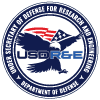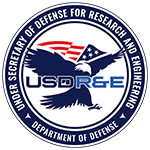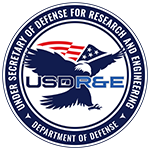Autonomous Systems
Autonomous systems are critical to the future of the Department of Defense, and test and evaluation (T&E) is essential to ensuring the revolutionary capabilities they offer are effective and safe. DTE&A has been working with T&E organizations for more than 10 years to evolve T&E to address unique aspects of autonomy. In 2015, DTE&A sponsored its first workshop to identify challenges for T&E of autonomous systems Test and Evaluation of Autonomous Systems and sponsored additional workshops in 2019 and 2022 to identify lessons learned and best practices.
DTE&A also sponsors the Advancements in Test and Evaluation of Autonomous Systems (ATEAS) effort led by the Scientific Test and Analysis Techniques Center of Excellence (STAT COE). The effort continues the goals of the workshops by gathering best practices and lessons learned across the DoD, other government organizations including NASA and NIST, industry and academia. It also provides direct support to specific autonomy programs to integrate lessons learned, best practices and advanced statistical techniques.

DTE&A is currently developing the Developmental Test and Evaluation (DT&E) of Autonomous Systems Guidebook to provide focused guidance and recommended practices for early and DT&E of autonomous systems. This guidebook addresses the novel challenges of removing human operators from DoD systems, and empowering future autonomous systems to independently act in contested environments. These challenges demand iterative approaches to evaluating the growing capabilities of AI-enabled autonomous systems, to assure trusted mission capability across complex operational environments. Therefore, this guidebook intends to identify and explain DoD policy for autonomous systems T&E; identify and explain specific challenges for autonomy T&E, such as data, safety, design for test, and human-machine teaming; share guidance on lessons learned and best practices for the full continuum of autonomy T&E, such as continuous testing, runtime assurance, LVC testing, and cognitive instrumentation; and provide information about tools and resources for autonomy T&E from trusted federal sources. The guidance provided leverages emerging best practices in agile and iterative testing to extend success throughout the T&E continuum.
The guidebook intends to support effective, efficient, robust autonomous military systems T&E enabling future mission capabilities; informing program management on program and contract decision T&E risks and opportunities; informing autonomy systems engineering on model, simulation, and system design T&E risks and opportunities; and informing autonomy requirements, CONOPS, and mission capabilities based on T&E risks and opportunities. The guidebook is scheduled for publication in 2024.
Office of the Under Secretary of Defense,
Research and Engineering (OUSD(R&E))
3030 Defense Pentagon, Washington, DC 20301-3030
Contact Us
Contact Us
Information for the USD(R&E):
Contact OUSD(R&E) Staff
Social Media: @DoDCTO on Twitter
For website issues: Contact Webmaster


